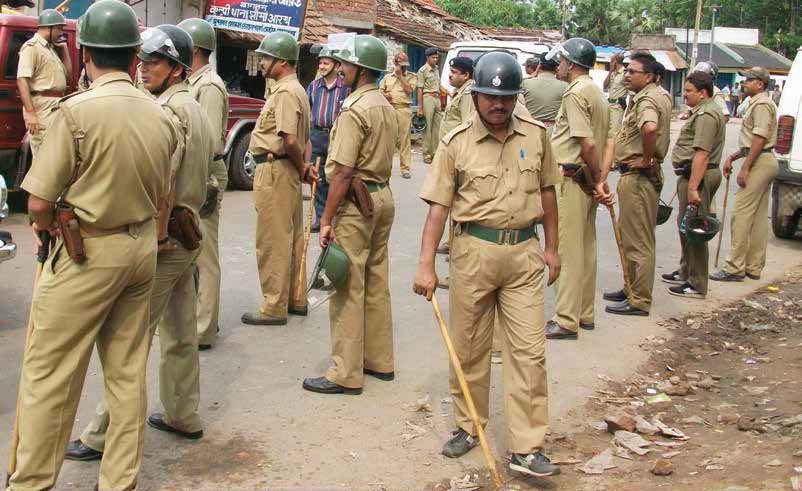This article is written by Jaswinder Kaur, from Rayat bahra College of Law, Punjab. In this article, the author shall be discussing the case law Sonu vs. Sonu Yadav, justify the term “quality of reason” and shall be discussing provisions related to dowry cases.
Table of Contents
Introduction
A 24-year-old narrates her story of how her in-laws demanded more dowry before receiving a branded washing machine, refrigerator, air conditioner, and car. They threaten her that if she does not fulfill their demand then it will not be good for her. They harass her physically and mentally. Today is the 15th day of her protest to get justice. Her protest explains that the law against dowry is ineffective in India and it needs people to complain against the evil custom of dowry. Dowry is one of the oldest traditions in India which is still present in Indian society. Dowry is a social evil that is one of the causes of domestic violence on women in India. Dowry is both joy and sorrow, joy is for the groom’s family who is going to receive a hefty amount in the name of culture, and sorrow for the bride’s family as they take heavy loans from the bank to fulfill the wishes of her daughter’s in law. According to a report published by Statista Research Department, in 2019, the northern state of Uttar Pradesh in India had the highest number of reported dowry deaths with more than two thousand cases registered with the authorities. The country has recorded over seven thousand cases that year. The dowry system is that cycle that is getting more and more vicious.
Meaning of the term ‘quality of reason’ in dowry death case
Orders granting bail comport with a judicial process that brings credibility to the administration of criminal justice. This appeal arose from a judgement given by Allahabad high court in a criminal miscellaneous bail application.
As we know that bail application is considered a right of the accused since prolonged custody is considered against the rule of law but any judicial order granting bail to the accused without any kind of ‘quality of reasoning’ will be set aside. Because the high court without any due application of mind to the relevant facts and circumstances granted a bail application to the respondent.
The provision of Section 304B as well presumption arises under Section 113B of The Indian Evidence Act, 1872, the High Court was not justified in granting bail to the accused Also cannot ignore the medical prescription which was submitted before the court, would indicate that there was no serious ailment with the deceased. There are serious allegations in the FIR regarding the harassment suffered by the appellant’s sister. The above decision by the supreme court gives a clear picture as to why proper reasoning shall be provided before granting bail.
Important laws related to dowry cases
To stop this cruel custom, the Indian government has enacted many laws related to dowry related crimes. These are as follows:
- Section 3 in the Dowry Prohibition Act,1961 – This section says any person found giving and taking dowry under this section shall be published with imprisonment for a term of 5 years and fine for about fifty thousand or the amount of the value of such dowry whichever is more. The court for adequate and special reasons may impose imprisonment of fewer than 4 years. Nothing in this subsection shall apply to, or in relation to:
- presents which are given to the bride at the time of her marriage (without any demand having been made on that behalf), such presents are entered in a list maintained in accordance with the rules made under this act;
- presents which are given to bridegroom at the time of her marriage (without any demand having been made on that behalf), such presents are entered in a list maintained in accordance with the rules made under this Act;
- further such presents are made by or on behalf of the bride or person related to the bride;
- such presents are of customary in nature and the value, therefore, is not excessive regard to the financial status of the person by whom, or on whose behalf, presents were given.
- Section 4 in the Dowry Prohibition Act – In this Section, it is given that if any person demand dowry directly or indirectly, from the parents, relatives, or guardian of a bride or bridegroom, he shall be punished with imprisonment of six months which may be extended to two years, and also fine with 10 thousand rupees in some cases the imprisonment may be less than six month. This section says that being the husband or the relative of the husband of a woman, subjects such women to cruelty shall be given the punishment of 3 years of imprisonment which if needed may extend and shall also be liable to fine. this section differ “cruelty” as –
- Any willful conduct which of such a nature that that push women to commit suicide or to cause severe injury or danger to life, limb or health(whether mental or physical) of the woman; or
- Harassment of a woman where such harassment leads to coercing her or any person related to her to demand anything like property or valuable security or is on account of failure by her or any person related to her to meet such demand.
- Section 304B in the Dowry Prohibition Act – This section provides that if the death of a woman is caused by any burns or bodily injury or occurs other than under normal circumstances within the seven years of her marriage and if shown that before her death she was subject to cruelty by her husband or any relative of her husband, or in connection with, any demand for dowry this kind of death is called “dowry death”, and her husband or relative shall be deemed to cause her death.
- Dowry shall have the same meaning given in Section 2 of the Dowry Prohibition Act, 1961. Also, those who commit dowry death shall be punished with imprisonment of seven-year but may extend to life imprisonment also.
- These are some special powers of the High Court and court of the session regarding bail. A High Court or court of a session may direct:
- That person accused of an offense and in custody be released on bail, and if the offense is of the nature specified in subsection (3) of Section 437 of the Code of Criminal Procedure, 1973 (CrPC), may impose a condition which it considers necessary for the purpose mentioned in that sub-section;
- Any condition imposed by Magistrate when releasing a person on bail set aside: the High-Court of session court before granting bail to a person who is accused of an offense which is triable by court of the session or which is not tribal, is punishable with imprisonment for life, or give notice of the application for bail to the public prosecutor unless it is, for a reason to be recorded in writing, of opinion that is not practicable to give such notice.
- High court or court of session may direct any person who is released on bail under this chapter can be arrested and committed to custody.
Meaning of the term ‘quality of reason’ in dowry death cases
Orders granting bail comport with a judicial process that brings credibility to the administration of criminal justice. This appeal arose from a judgement Sonu Yadav v. State of U.P given by Allahabad high court in a criminal miscellaneous bail application.
As we know that bail application is considered a right of the accused since prolonged custody is considered against the rule of law but any judicial order granting bail to the accused without any kind of ‘quality of reasoning’ will be set aside. Because the high court without any due application of mind to the relevant facts and circumstances granted a bail application to the respondent.
Sonu v. Sonu Yadav
Facts of the case
- In this case, the sister of the appellant was married to the respondent in July 2018. At the time of marriage, the respondent has given Rs 15 lakhs, a motor vehicle, and household articles were given as dowry to the respondent;
- The complainant alleged that the family of the respondent was not very happy with the dowry and they demanded 5 lakhs more. So on 8th February 2019, the appellant received a call from the respondent that if you want to see your sister give the said amount to us. On the very next day, they received another call where the respondent told the appellant to take away the dead body of his sister;
- The appellant with his family went to the district hospital and received the dead body. After that, an FIR was registered on 9th February 2019 for an offense under Section 498A and 304B of IPC and also Section 3 and Section 4 of the Dowry Prohibition Act;
- After the case filed by the appellant went to session court and filed a bail application which was rejected by the court. So the respondent approached the High Court seeking bail under Section 439 of the CrPC;
- After considering all the facts and circumstances of the case, submissions of learned counsel for the parties, and keeping in view the nature of the offense, evidence, the complicity of the accused, and without expressing any opinion on the merits of the case, the court was of the view that the applicant has made out a case for bail. The bail application was allowed;
- Aggrieved by the decision of the High Court, the present appeal was filed before the Supreme Court.
Contention of parties
- The appellant had made the following contentions before the court:
The High Court had mentioned no reason for granting bail to the appellant. The evidence presented before the court can’t ignore that the deceased was suffering from a mental illness was false and the medical prescription dated 1 January 2019 was issued by an Ayurvedic doctor a month before the date of the incident on 1 January 2019. Ex facie, the medical prescription indicates that the deceased was not undergoing treatment for the mental condition. The provisions of Section 304B of the Indian penal code and the presumption which arise under Section 113A and 113B of the evidence act, there was no justification from the high court to grant bail.
- The respondent made following contentions before the court:
The high court has abstained from expressing any view on the merits which may hinder the course of the trial. The statement recorded during the investigation would indicate that death was caused because of hanging. Therefore, it would be appropriate for the court to grant bail application to the respondent.
- The counsel appearing on behalf of the state said that the accused has attempted to make improvements in the case regarding the phone number through which money was demanded from the complaint. It has been said that the phone number was not associated with the respondent and his family members.
Findings of the court
- While hearing both the parties, the court looked into the facts and observed that the decision given by the High Court was not justified;
- The respondent granted bail on the basis that her wife was “suffering from severe headache and was mentally disturbed for nine months”. But when the Supreme Court analysis the medical prescription it clearly did not indicate any serious matter with her health;
- The High-Court was not justified in granting bail because serious allegations had been made against the respondent in the FIR that he harasses the deceased;
- Further, the court said that the high court can ignore the fact that the serious allegations are of that extent that a woman has suffered an unnatural death within a year of her marriage;
- The supreme court observed that the High Court order contained no reasons at all.
An analysis of the judgement
The above judgement mainly talks about how the High Court granted a bail application to the accused without applying a reasonable justification. Murder is not bailable offence still the accused get bail but, It is now settled law that the complainant can always question the order granting bail if the said order is not validly passed. The only way to get the bail cancelled on account of misuse. However we find from the order passed by high court that no reasons were given by the learned judges while granting the bail and it seems to have been granted almost mechanically without considering the pros and cons of the matter while granting bail, particularly in serious cases like murder where the reasons justifying are necessary. The supreme court made an analysis on various facts and issues, coming to a conclusion that the appeal will be allowed and the bail application dismissed.
Conclusion
Any young man, who makes dowry a condition to marriage, discredits his education and his country and dishonours womanhood – Mahatma Gandhi. Indian government made many laws related to dowry death cases, still we daily hear news like bride was torture to death because in-laws were demanding something in return of her life. We need to educate people about the worst effect of dowry on women. Poverty is also the cause of dowry death in India as many people are poor and they find dowry is the only way to come up with all kinds of misery. Death because of dowry does not create a good picture of India in the eyes of the world. It’s high time to raise awareness about this evil custom and more strict laws to be made so that a person thinks twice for doing this kind of dirty act.
References
- https://indiankanoon.org/doc/93155279/
- https://www.lawyersclubindia.com/judiciary/sonu-v-sonu-yadav-and-anr-2021-dowry-death-case-quality-of-reasons-matter-order-without-reasons-is-fundamentally-contrary-to-the-norms-which-guide-the-judicial-process-5121.asp
LawSikho has created a telegram group for exchanging legal knowledge, referrals and various opportunities. You can click on this link and join:
 Serato DJ Crack 2025Serato DJ PRO Crack
Serato DJ Crack 2025Serato DJ PRO Crack











 Allow notifications
Allow notifications


